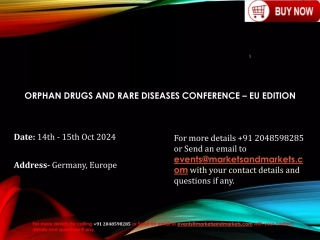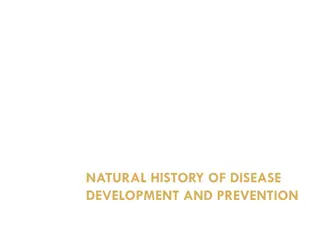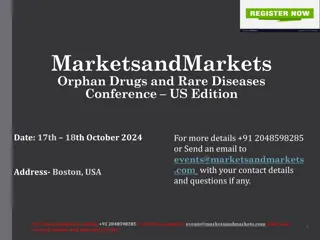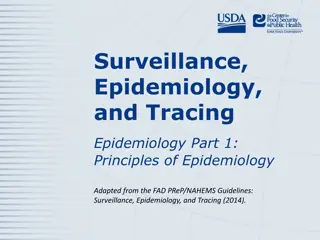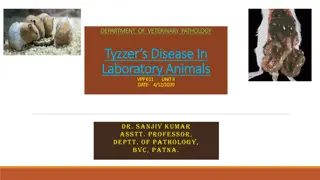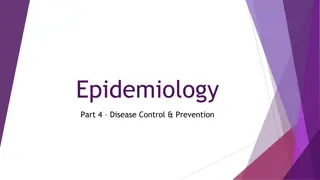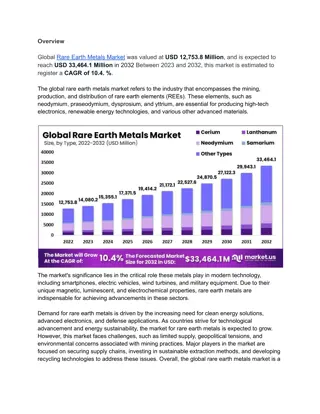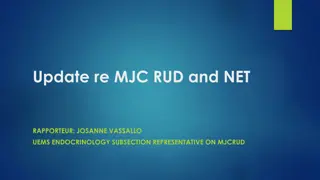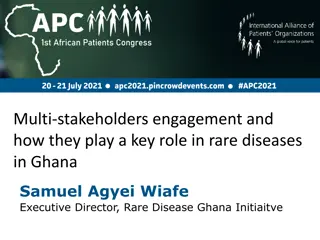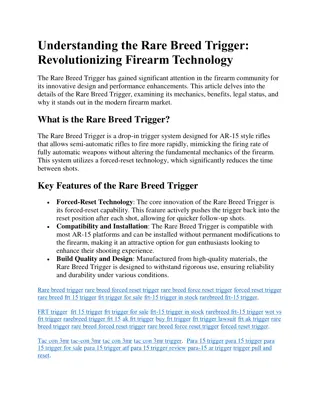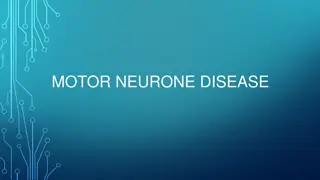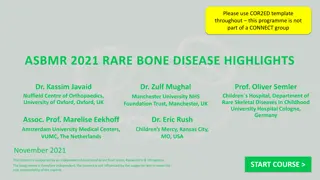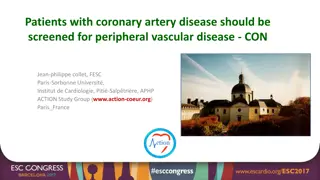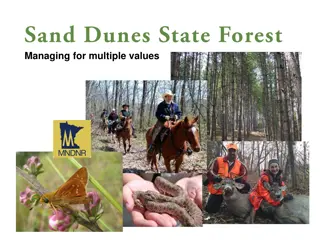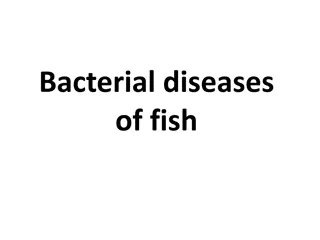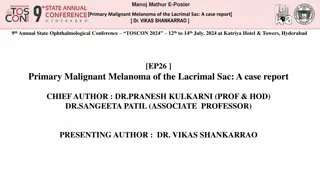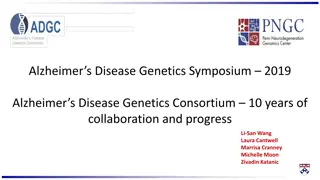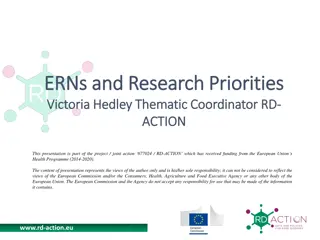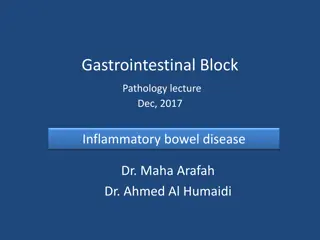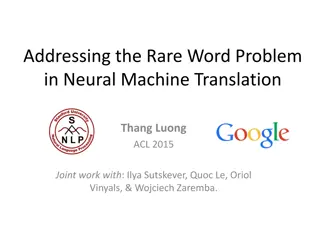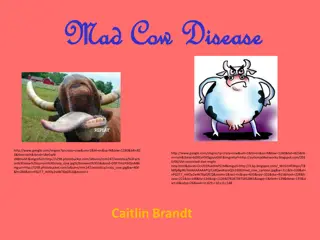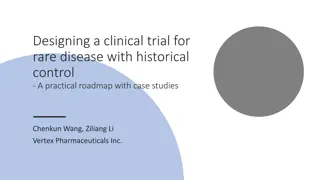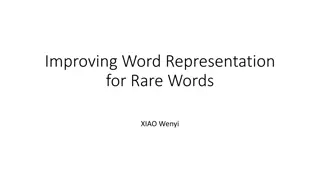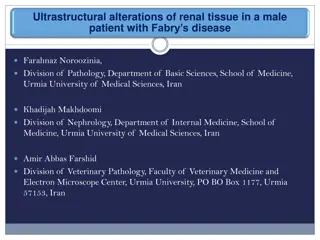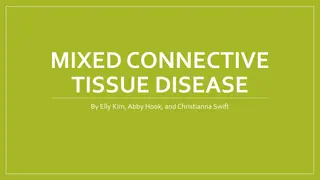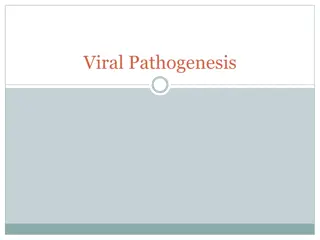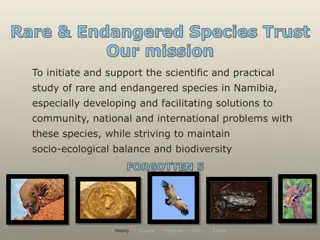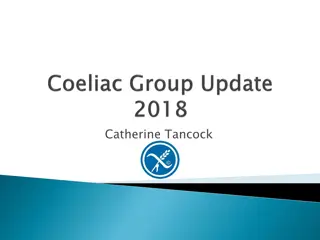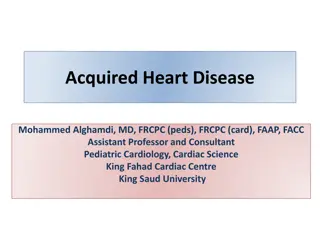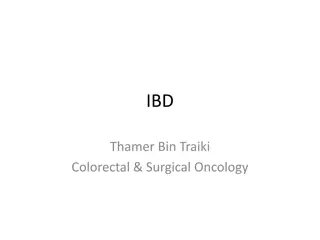Upcoming Event on Orphan Drugs and Rare Diseases– | 14th – 15th October 2024
Join us at our MarketsandMarkets 5th Annual Orphan Drugs and Rare Diseases Conference in Germany, Europe, for a groundbreaking exploration of the recent advances in developing life-saving therapies, technologies in diagnosing, and strategies to enhance orphan drug development.\n\nEnquire Now @ https
1 views • 5 slides
The Natural History of Disease Development and Prevention
The natural history of disease development outlines the progression of a disease in an individual without intervention, from exposure to outcome. Learning objectives include defining prevention terms, understanding disease severity, prevention levels, and intervention measures. Studying disease prog
4 views • 16 slides
Hennessy Paradis rare cognac shop online uk
In the UK, the price of single malt whisky can vary widely depending on factors like brand, age, and rarity. On average, you can expect to pay anywhere from \u00a330 to \u00a3100 or more for a standard bottle. Limited editions or older expressions can command prices well into the hundreds or even th
5 views • 6 slides
Rare Isotope Beams from FRIB - Facility Overview and Operations
FRIB (Facility for Rare Isotope Beams) is supported by the U.S. Department of Energy and Michigan State University. It utilizes advanced techniques for rare isotope beam formation, offering insights into nuclear physics. The facility operates with high beam power, serving various scientific experime
0 views • 15 slides
Orphan Drugs and Rare Diseases – US Edition | 17th - 18th October 2024
Join us at our MarketsandMarkets Orphan Drugs and Rare Diseases Conference in Boston, USA for a groundbreaking exploration of the recent advances in developing life-saving therapies, technologies in diagnosing, and strategies to enhance orphan drug development.\n\nRegister Now @ \/\/events.marketsan
1 views • 5 slides
Principles of Epidemiology: Understanding Disease Occurrence and Surveillance
Epidemiology is the study of disease patterns, factors influencing disease occurrence, and the core functions of surveillance, field investigation, and analytic studies. It involves understanding disease characteristics, natural history, and evaluating the effectiveness of activities to mitigate dis
1 views • 25 slides
Concerns Over Weight Loss Drugs and Rare Eye Condition
Novo Nordisk shares remained stable on Thursday, despite a critical report from Harvard Medical School linking the company\u2019s weight loss drugs to a rare eye condition
0 views • 2 slides
Insights into Tyzzer's Disease: An Overview of a Bacterial Infection in Laboratory Animals
Tyzzer's disease is an acute bacterial infection affecting rodents and rabbits, caused by Clostridium piliforme. Discovered in 1917 by Ernest Tyzzer, the disease is characterized by necrotic lesions in the caecal mucosa, liver, and heart. Initially known as Bacillus piliformis, it was later renamed
2 views • 21 slides
Disease Control and Prevention in Epidemiology
This article discusses disease control processes in epidemiology, including reducing disease incidence, duration, and transmission. It covers public policy interventions, elimination, eradication, and extinction of infectious agents. It also highlights preventable causes of disease and different lev
2 views • 10 slides
Rare Earth Metals Market Gains Momentum with Tech Advancements
Global Rare Earth Metals Market was valued at USD 12,753.8 Million, and is expected to reach USD 33,464.1 Million in 2032 Between 2023 and 2032, this market is estimated to register a CAGR of 10.4. %.\n\nDownload a sample report in MINUTES@\/\/market
0 views • 4 slides
Updates on European Training Requirements for Rare Diseases and Neuroendocrine Neoplasia Medicine
Comprehensive updates on European training requirements for rare diseases, rare adult solid cancers, and neuroendocrine neoplasia medicine. Initiatives include syllabi, competencies, and collaborations with international networks for advancements in the field.
0 views • 6 slides
Stakeholder Engagement in Rare Diseases: Key Role in Ghana
Rare diseases in Ghana present significant challenges such as lack of awareness, insufficient data, delayed diagnosis, and limited treatment options. To address these issues, collaborative efforts involving multiple stakeholders are essential. Actions are needed to enhance health education, improve
0 views • 9 slides
Decoding the Rules of the Rare Red Splats!
Dive into the intriguing world of the Rare Red Splats with ever-changing rules on each slide. Carefully decipher the values based on the relationship between the red and black Splats. Test your logic skills and uncover the mysteries within each level.
0 views • 17 slides
RAREBREEDTRIGGERSTORE
The Rare Breed Trigger has gained significant attention in the firearm community for its innovative design and performance enhancements. This article delves into the details of the Rare Breed Trigger, examining its mechanics, benefits, legal status,
36 views • 3 slides
MOTOR NEURONE DISEASE
Motor Neurone Disease (MND) is a rare condition affecting the brain and nerves, leading to loss of motor function. There is no cure for MND, and it can impact adults and children, causing symptoms like muscle weakness, speech difficulties, and changes in personality. The Irish Motor Neurone Disease
0 views • 7 slides
Rare Bone Disease Research Highlights from ASBMR 2021
Explore the latest findings and insights in rare bone diseases presented by experts like Dr. Kassim Javaid and Dr. Zulf Mughal at ASBMR 2021. This independent educational programme focuses on translating research into clinical practice, raising awareness, and improving early diagnosis globally. Watc
0 views • 23 slides
EveryLife Foundation for Rare Diseases Introductory Webinar Overview
The EveryLife Foundation for Rare Diseases held an introductory webinar providing insights into their mission, foundation overview, staff members, board composition, and initiatives like advocating for biotechnology innovation and rare disease treatments through policy and law changes. The foundatio
0 views • 31 slides
Screening for Peripheral Vascular Disease in Patients with Coronary Artery Disease
Patients with coronary artery disease should be screened for peripheral vascular disease as it is a frequent integrator of global cardiovascular risk. The association of atherosclerosis in various arterial diseases highlights the importance of identifying multisite artery disease. The prevalence and
0 views • 23 slides
Managing for Multiple Values in Forest Conservation
Forest management for multiple values involves producing timber, providing recreation, protecting watersheds, and perpetuating rare species. Covering over 11,000 acres with a diverse ecosystem, the area includes oak woodlands, savannas, and prairies. With a shift towards conserving rare features and
0 views • 17 slides
Human Disease Symptom Network: Understanding Disease Relationships Through Symptoms and Genes
The Human Disease Symptom Network (HSDN) is constructed using a large-scale medical bibliographic records database to form a network of human diseases based on symptom similarities. By integrating disease-gene associations and protein-protein interaction data, correlations between symptom similarity
1 views • 37 slides
Bacterial Diseases of Fish: Columnaris Disease Overview
Columnaris disease, also known as Saddleback disease, is a common bacterial infection in fish that is often brought about by poor handling and high stress levels. This disease manifests as tail and fin rot, leading to rapid fish mortality. The causative organism, Cytophaga (formerly Flexibacter), is
0 views • 21 slides
Primary Malignant Melanoma of the Lacrimal Sac: A Rare Case Report
Malignant melanoma of the lacrimal sac is a rare condition that poses challenges in early diagnosis due to its insidious onset. This case study discusses the presentation, diagnosis, and treatment of a 78-year-old woman with a palpable mass in the lacrimal sac, highlighting the importance of early i
0 views • 6 slides
Decoding Genetics: Insights from Alzheimer's Disease Symposium to Type 2 Diabetes Study
Explore the latest findings from the Alzheimer's Disease Genetics Symposium 2019 on disease mechanisms, drug targets, and genetic pathways. Dive into the progress made by the Alzheimer's Disease Genetics Consortium over the past decade. Transition to a Genome-Wide Association Study uncovering suscep
0 views • 42 slides
Challenges in Ensuring Critical Mineral Supply for Japan's Sustainable Industrial Activities
Japan faces challenges in securing critical minerals for sustainable industrial activities due to market failures in rare metals trade, lack of information symmetry in supply chains, and the small market size of rare metals. The Government of Japan implements policy measures such as overseas resourc
0 views • 15 slides
Advancing Rare Disease Research and Healthcare Initiatives
This presentation highlights the objectives, thematic priorities, and actions of the RD-ACTION project funded by the European Union's Health Programme. It focuses on supporting the Orphanet database, promoting multi-stakeholder debates on rare diseases, and enhancing data sharing and healthcare path
0 views • 16 slides
Liver Disease Burden in Tower Hamlets
Dr. Somen Banerjee, Director of Public Health in London Borough Tower Hamlets, highlights the concerning liver disease mortality rates in the area, with high incidence of cirrhosis, cancer, and hepatitis B and C. The data reveals a significant burden of liver diseases such as Non-Alcoholic Fatty Liv
0 views • 18 slides
Inflammatory Bowel Disease: Crohn's Disease and Ulcerative Colitis
Inflammatory Bowel Disease (IBD) encompasses Crohn's disease (CD) and ulcerative colitis (UC), chronic conditions with immunologic basis. This article delves into the epidemiology, pathophysiology, and differences between CD and UC, highlighting clinical features, pathology, and complications like a
0 views • 42 slides
Addressing the Rare Word Problem in Neural Machine Translation
Thang Luong and team addressed the rare word problem in Neural Machine Translation by proposing an approach to track the origins of rare words in target sentences. They utilized unsupervised alignments and relative indices in the training data and implemented a post-processing method for test transl
0 views • 21 slides
Mad Cow Disease: Causes, Symptoms, and Prevention
Mad Cow Disease, or BSE, is an incurable and fatal brain disease caused by prions affecting cattle. It can be transmitted to humans through contaminated meat, leading to vCJD. While rare and non-contagious, it poses a serious health risk with no known treatment. The disease progresses slowly, affect
0 views • 6 slides
Practical Guidelines for Designing Clinical Trials in Rare Diseases
This comprehensive content delves into the strategic planning of clinical trials for rare diseases, emphasizing the utilization of historical control data and the challenges associated with it. It discusses the significance of historical control in trial design, the evolving landscape of rare diseas
0 views • 18 slides
Enhancing Word Representation for Rare Words by Xiao Wenyi
This article discusses methods for improving word representation for rare words, such as the count-based Skip-gram by Mikolov and the predict-based GloVe by Pennington. It explores the concepts of Skip-gram, GloVe, and issues faced by existing models in handling rare words.
0 views • 22 slides
Ultrastructural Alterations of Renal Tissue in a Male Patient with Fabry's Disease
Fabry's disease is a rare X-linked lipid storage disorder characterized by deficient lysosomal alpha-galactosidase A activity. This condition primarily affects males, leading to chronic kidney disease and progression to end-stage renal disease. Kidney involvement is a critical aspect, and high doses
0 views • 24 slides
Mixed Connective Tissue Disease (MCTD)
Mixed connective tissue disease (MCTD), also known as Sharp's syndrome, is a rare inflammatory rheumatic disease diagnosed through clinical evaluation, patient history, or special blood tests. Symptoms include overlapping connective tissue disease symptoms, with main cause being autoimmunity. It can
0 views • 7 slides
Viral Pathogenesis: Causes and Consequences
Viral pathogenesis involves the process by which a virus leads to disease, exploring the interplay between viral and host factors. It encompasses the concepts of virulence, viral disease, and the effects on infected cells and the host's immune response. Changes within infected cells, including cell
0 views • 26 slides
Rare & Endangered Species Trust: Protecting Namibia's Vultures and Pangolins
Rare & Endangered Species Trust in Namibia focuses on studying and supporting rare and endangered species, particularly vultures and pangolins. With a mission to find solutions to conservation challenges and maintain biodiversity, the trust highlights the history, crisis, and future prospects for th
0 views • 19 slides
Exploring the History and Evolution of Coeliac Disease
Samuel Gee's pivotal clinical description of coeliac disease in 1887 unraveled a chain of discoveries leading to the understanding of its genetic and immunological roots. Early connections between wheat and the disease shed light on the domestication of wheat and its impact on human health. Recent i
0 views • 23 slides
Acquired Heart Disease
Acquired heart disease in children, including rheumatic fever and Kawasaki disease, is crucial for pediatric cardiologists to diagnose and treat effectively. Rheumatic fever, often precipitated by Group A Streptococcal pharyngitis, can lead to rheumatic heart disease if not recognized promptly. Reco
0 views • 36 slides
Understanding Inflammatory Bowel Disease (IBD) and Crohn's Disease
Inflammatory bowel disease (IBD) encompasses conditions like ulcerative colitis and Crohn's disease, with distinguishing factors based on clinical and pathologic criteria. Crohn's disease is a chronic inflammatory condition affecting the gastrointestinal tract with both medical and surgical treatmen
0 views • 51 slides
Rare Disease Diagnosis Journey Survey - Patient Perspectives
Surveying rare disease patient representatives online to identify factors affecting timely and accurate diagnosis. The qualitative phase aims to understand the diagnosis process, hurdles, best practices, support needs, and role of new technologies. Participants engage in a 5-day online community fac
0 views • 7 slides
Addressing Rare Diseases: The Right to Health Perspective
This content delves into the intersection of rare diseases and the right to health, emphasizing the importance of ensuring access to quality treatment and support for individuals with rare diseases. It discusses the analytical framework, challenges, and opportunities in addressing rare diseases as a
0 views • 9 slides
